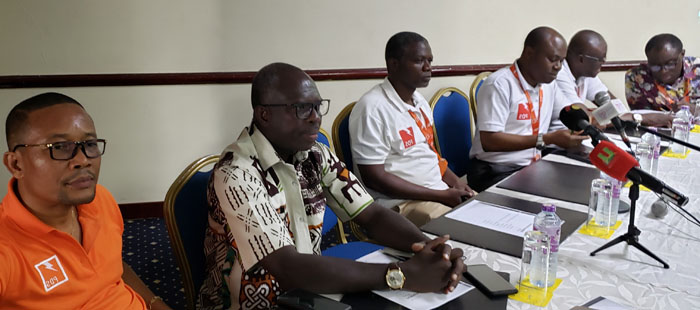Some of the PDS gurus during the media encounter
THE ASHANTI Region is leading in terms of unpaid electricity tariffs across the country, the Power Distribution Services (PDS) has announced.
Approximately, one-third of all customers that owe the power distribution company in the country are currently stationed in the Ashanti Region.
Ing. David Asamoah, Ag. Director of PDS, Ashanti Region, who made the disclosure, openly lamented the unpleasant development.
He could not readily state the exact number of people and the amount they owed the PDS, but he stated that the Ashanti Region leads in the power debt ratio.
Ing. Asamoah also complained bitterly that the unpaid electricity tariffs were gradually having adverse effects on the general operations of the PDS.
According to him, the high unpaid debt usually prevents the PDS from purchasing new pieces of equipment to help improve their operations.
Addressing journalists in Kumasi during a media encounter on Friday, he admonished PDS customers to constantly pay their electricity bills.
He was of the view that the PDS could be properly positioned to serve their customers better if customers constantly paid for power that they had used.
He also noted that the PDS had introduced new policies to help stop the unpaid electricity tariffs syndrome in the region once and for all.
He announced that the PDS had started a rigorous pre-paid meter installation exercise in the region with the intention to stop unpaid power tariffs.
He disclosed that over 255,000 pre-paid meters had been installed in the Ashanti Region by the PDS since the exercise commenced.
He also mentioned power theft, bush fires and unauthorized meters, among others, as some of the major challenges that are currently facing the PDS.
Besides, he said in the face of the aforementioned challenges, the PDS had started operations to boost their services in the region.
He disclosed that transformers were being upgraded, while PDS was working to automate most of its sub-stations, among other positive interventions.
FROM I.F. Joe Awuah Jnr., Kumasi

